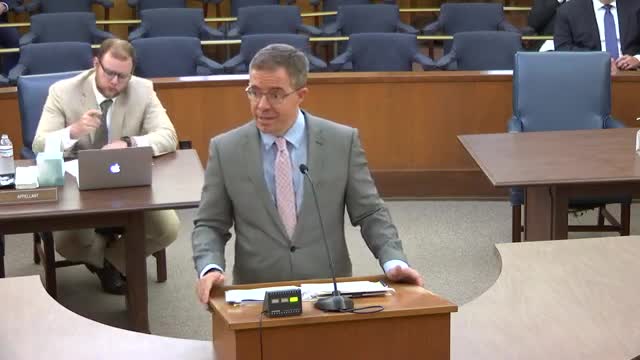Court hears dramatic testimony in high-stakes drug case
October 02, 2024 | Judicial, Tennessee
This article was created by AI summarizing key points discussed. AI makes mistakes, so for full details and context, please refer to the video of the full meeting. Please report any errors so we can fix them. Report an error »

In a recent government meeting, discussions centered around a legal case involving a defendant who was arrested while attempting to evade law enforcement. The transcript reveals that as officers approached the residence to execute a warrant, the defendant shouted \"police\" before retreating back inside. This prompted an officer to enter the home and detain the defendant along with two others found hiding in a bedroom, where methamphetamine and drug paraphernalia were discovered.
The meeting also highlighted the post-conviction hearing, where the defendant's trial counsel testified about the decision not to file a motion to suppress evidence. Counsel indicated that after reviewing the circumstances, he deemed such a motion to lack merit, particularly noting that a co-defendant had previously litigated the same issue without success in the same trial court.
The trial court's findings were discussed, revealing that the petitioner failed to provide clear and convincing evidence that a motion to suppress would have been successful. The court emphasized that the petitioner did not adequately challenge the actions of the officers involved or provide detailed testimony regarding the incident.
Overall, the meeting underscored the complexities of the legal proceedings and the challenges faced by defendants in post-conviction scenarios, particularly regarding the effectiveness of legal counsel and the sufficiency of evidence presented in court.
The meeting also highlighted the post-conviction hearing, where the defendant's trial counsel testified about the decision not to file a motion to suppress evidence. Counsel indicated that after reviewing the circumstances, he deemed such a motion to lack merit, particularly noting that a co-defendant had previously litigated the same issue without success in the same trial court.
The trial court's findings were discussed, revealing that the petitioner failed to provide clear and convincing evidence that a motion to suppress would have been successful. The court emphasized that the petitioner did not adequately challenge the actions of the officers involved or provide detailed testimony regarding the incident.
Overall, the meeting underscored the complexities of the legal proceedings and the challenges faced by defendants in post-conviction scenarios, particularly regarding the effectiveness of legal counsel and the sufficiency of evidence presented in court.
View full meeting
This article is based on a recent meeting—watch the full video and explore the complete transcript for deeper insights into the discussion.
View full meeting
